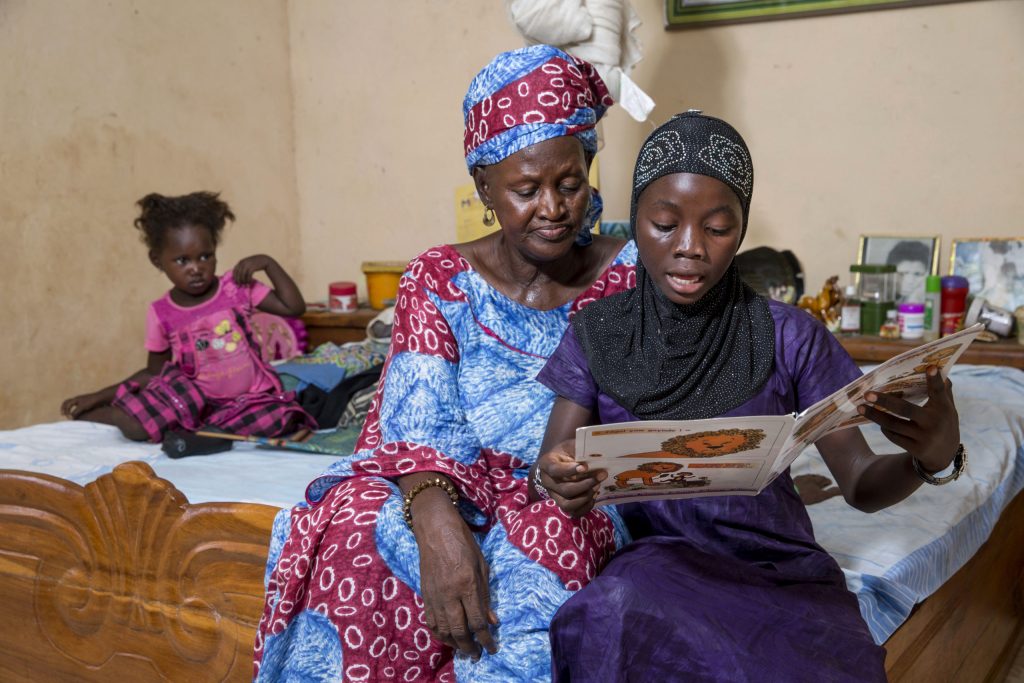
CREG
an African center of excellence on Generative Economy issues

By Edmée Marthe Ndoye
The Regional Consortium for Research in Generational Economics (CREG) is a center of excellence for research in generational economics created by the National Transfer Accounts (NTA) network. The network is co-directed by Professor Andrew Mason of the University of Hawaii at Manoa (USA) and Professor Ronald Lee of the University of California at Berkeley (USA), and brings together researchers from 98 countries in 2021 around the world working on demo-economic issues.
« Work on generational economics has the advantage of integrating age into national accounts, compared with the standard National Accounts approach. This is how the NTA network came up with the National Transfer Accounts, which make it possible to assess, at each age, how individuals produce, consume, share resources and save for their future. »
The relevance of the network’s studies is reflected in the importance of population issues in development thinking. Indeed, developing countries in general, and African countries in particular, are undergoing a demographic transition that will considerably alter their population structure. If the right economic and social policy measures are effectively implemented, these countries could harness or optimize their demographic potential in terms of inclusive economic growth and harmonious, sustainable economic and social development. This phenomenon, known as the demographic dividend, emerged from the experience of the Asian tigers, who experienced a meteoric rise in economic growth following a fall in the total fertility rate in their countries (Bloom, 2003).
As the African representative of the NTA network, CREG’s mission is to help African countries understand, in the context of demographic transition, how population dynamics affect economic growth, education, health, intergenerational equity and gender equality and equity. The latter, in particular, is now a fundamental issue in the quest for economic and social development.

As part of its mission, CREG has forged strong partnerships with development players such as UNFPA – through the Sahel Women’s Empowerment and Demographic Dividend (SWEDD) Project -, UN Women, the Ouagadougou Partnership , but also with universities and gender research institutes, notably the Levy Institute of Bard College, the University of Toronto with the Care Economy project, and the University of California at Berkeley as part of the Counting Women’s Work project. In view of the importance of domestic work in the implementation of economic and social welfare policies, CREG is also collaborating with the Population Reference Bureau (PRB) on the implementation of research implementation plans to increase the commitment of policy-makers to take better account of unpaid domestic work.
The Counting Women's Work (CWW) project
The CWW is part of the NTA project on which CREG is working in partnership with the University of California at Berkeley and PRB. It was prompted by the failure to take account of women’s invisible work, unpaid domestic work, in the NTA analysis. As a result, the National Time Transfer Accounts (NTTA) methodology was developed to understand how men and women, girls and boys produce, consume and transfer domestic care and other services for the benefit of the household itself.
A combination of NTA and NTTA allows us to conceptualize and estimate the transfer of time and money. The result is a more complete picture of economic and social life, and a better consideration of women’s work.

Related issues addressed by National Time Transfer Accounts (NTTA)
Apart from NTTA, there are a multitude of approaches to gender analysis, but these do not take generational aspects into account. Thus, studies based on the NTTA approach are all the more relevant as they address important issues of unpaid domestic work, including:
- What impact can inequalities in the burden of unpaid domestic work between men and women, girls and boys, have on household well-being, the demographic dividend and the economy as a whole?
- What happens if the burden of unpaid domestic work does not fall as women’s paid work increases?
- What trade-offs should countries make to favor family-friendly policies in this changing social context?
- What protection systems should be put in place to ensure social equity by taking unpaid domestic work into account?
In view of the demographic and social changes taking place in our societies, it seems essential to answer these questions in the quest for sustainable economic and social development that leaves no one behind.

